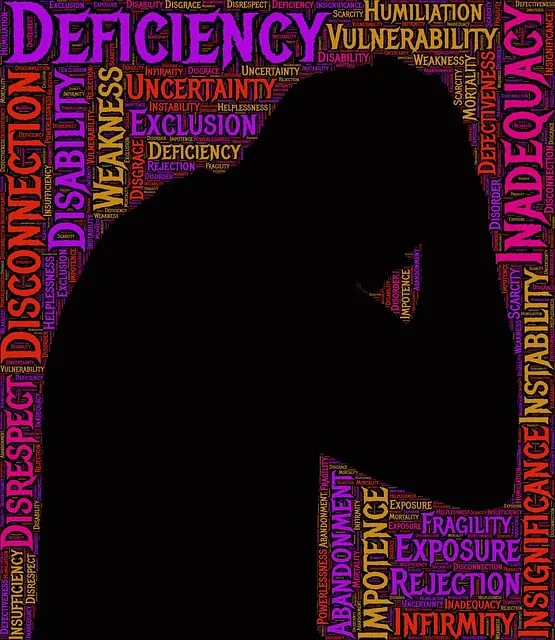Centennial Kaiser Permanente Psychiatry has been a pioneering force in modern mental healthcare through holistic patient approaches. They've significantly shaped mental healthcare with programs like Burnout Prevention Strategies and Healthcare Provider Cultural Competency Training, enhancing support for professionals and the public. Community engagement is central to their initiatives, including podcast series, self-awareness exercises, and promoting mind over matter principles, fostering open conversations about mental health and creating inclusive networks beyond clinical settings. Their advocacy efforts, such as the Community Outreach Program Implementation and Mental Wellness Podcast Series, aim to break down barriers to care, particularly stigma, and empower individuals from diverse backgrounds to prioritize their emotional well-being. Success is measured through KPIs and qualitative assessments, ensuring programs remain aligned with community needs.
Mental health advocacy initiatives have significantly evolved over time, with organizations like Centennial Kaiser Permanente Psychiatry playing a pivotal role in shaping public understanding and access to care. This article explores the historical perspective of mental health advocacy, focusing on the impact of community engagement and innovative strategies employed by Kaiser Permanente. We delve into how these efforts address barriers such as stigma and improve access to mental health services, ultimately measuring the effectiveness of advocacy programs for better patient outcomes.
- Uncovering the Impact of Mental Health Advocacy: A Historical Perspective on Centennial Kaiser Permanente Psychiatry
- The Role of Community Engagement in Shaping Mental Health Initiatives
- Innovative Strategies: How Kaiser Permanente Leads the Charge in Modern Psychiatry Advocacy
- Overcoming Barriers: Addressing Stigma and Access to Care within the Community
- Measuring Success: Evaluating the Effectiveness of Mental Health Advocacy Programs
Uncovering the Impact of Mental Health Advocacy: A Historical Perspective on Centennial Kaiser Permanente Psychiatry

The impact of mental health advocacy initiatives has been a significant area of interest, especially with historical perspectives offering valuable insights into progress and challenges. One notable example is Centennial Kaiser Permanente Psychiatry, which has played a pivotal role in shaping mental healthcare over the years. Since its inception, this institution has been at the forefront of promoting mental well-being, advocating for better understanding and access to psychiatric services.
Through various programs like Burnout Prevention Strategies for Healthcare Providers and Healthcare Provider Cultural Competency Training, Kaiser Permanente has contributed to enhancing mental health support. They have also invested in designing comprehensive Mental Health Education Programs, ensuring that both healthcare professionals and the public receive adequate education and resources. This historical journey highlights the power of advocacy in transforming mental healthcare landscapes, leaving a lasting impact on how communities approach and manage mental health issues.
The Role of Community Engagement in Shaping Mental Health Initiatives

Community engagement plays a pivotal role in shaping and strengthening mental health initiatives, as it fosters a sense of belonging and support for individuals navigating their mental wellness journeys. At Centennial Kaiser Permanente psychiatry, we recognize that mental health is deeply intertwined with the social fabric of our communities. By actively involving community members, local organizations, and diverse stakeholders, our advocacy efforts gain momentum and become more inclusive. This collaborative approach ensures that mental health initiatives resonate with the unique needs and cultural nuances of the populations they serve.
The production of a Mental Wellness Podcast Series or hosting Self-Awareness Exercises in community spaces can foster open conversations about mental health, breaking down stigma and promoting early intervention. Embracing Mind Over Matter Principles, individuals within these communities gain valuable tools to enhance their resilience and overall well-being. Through such initiatives, we aim to create a supportive network that extends beyond clinical settings, encouraging ongoing care and advocacy for better mental health outcomes.
Innovative Strategies: How Kaiser Permanente Leads the Charge in Modern Psychiatry Advocacy

Kaiser Permanente, a healthcare organization with a rich history spanning over a century (Centennial Kaiser Permanente psychiatry), has been at the forefront of revolutionizing mental health advocacy. Their innovative strategies in modern psychiatry focus on holistic approaches to patient care and well-being. One notable initiative is their commitment to community engagement, where they organize and host Stress Management Workshops, providing individuals with valuable tools to cope with daily stressors.
Furthermore, Kaiser Permanente recognizes the interconnectedness of mental and physical health. By incorporating programs aimed at Self-Esteem Improvement and Burnout Prevention, they empower patients to take proactive steps towards a healthier mindset. These initiatives not only cater to individual needs but also contribute to building resilient communities where mental well-being is prioritized and supported on a larger scale.
Overcoming Barriers: Addressing Stigma and Access to Care within the Community

Mental health advocacy initiatives play a pivotal role in overcoming barriers that many individuals face when seeking support. One significant challenge is addressing the persistent stigma surrounding mental illness, which often deters people from reaching out for help. The Centennial Kaiser Permanente psychiatry department recognizes this barrier and actively works towards reducing the stigma through various outreach programs. They implement community-based initiatives to educate and raise awareness, fostering a more inclusive environment where conversations about mental health are normalized.
These efforts include the Community Outreach Program Implementation, which focuses on bringing mental health resources directly to diverse communities. By conducting Self-Awareness Exercises and interactive workshops, they boost confidence in individuals to recognize their emotional well-being and take proactive steps towards seeking care. Through these initiatives, Centennial Kaiser Permanente aims to ensure that every individual, regardless of background, has accessible and non-judgmental mental health support.
Measuring Success: Evaluating the Effectiveness of Mental Health Advocacy Programs

Measuring success is a vital aspect of evaluating the effectiveness of mental health advocacy programs. Initiatives like the Centennial Kaiser Permanente psychiatry department’s Mental Wellness Podcast Series Production aim to foster mental wellness through accessible education and community engagement. The success of such programs can be gauged by tracking key performance indicators (KPIs) such as listener growth, engagement rates, and feedback from participants. By analyzing these metrics, advocates gain valuable insights into the program’s impact on public understanding and support for mental health causes.
Furthermore, qualitative assessments like surveys and interviews can provide deeper perspectives on audience self-esteem improvement and compassion cultivation practices. This comprehensive evaluation approach ensures that advocacy efforts align with the community’s evolving needs, fostering a more informed and supportive environment for mental health discussions.
Mental health advocacy initiatives, as exemplified by the historical journey of Centennial Kaiser Permanente Psychiatry and their modern strategies, are vital in shaping supportive communities. By engaging stakeholders and employing innovative approaches, such as addressing stigma and improving access to care, these programs can lead to significant improvements in mental well-being. Measuring success through evaluation ensures that these efforts remain effective and adaptable to the evolving needs of individuals within our diverse society.

